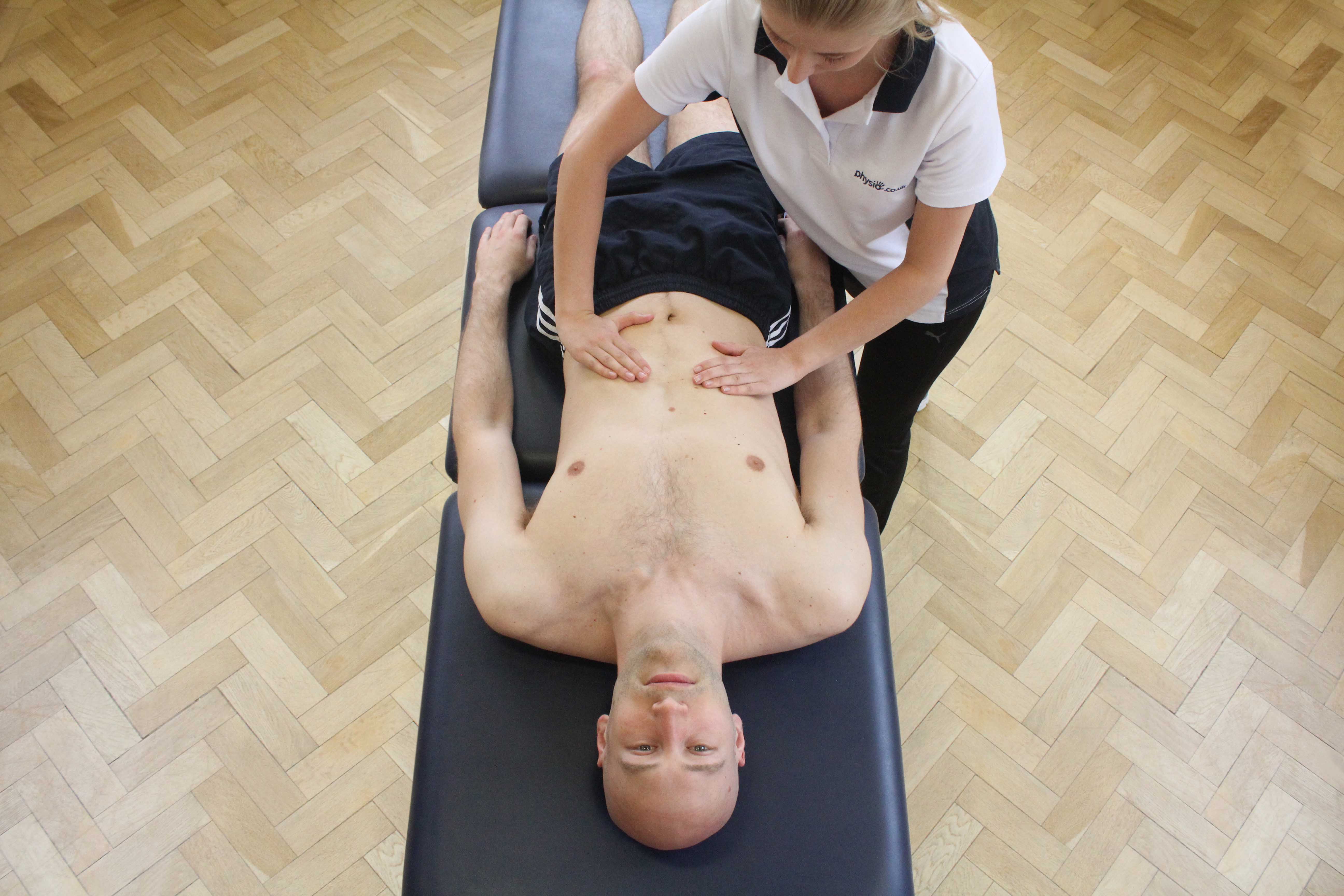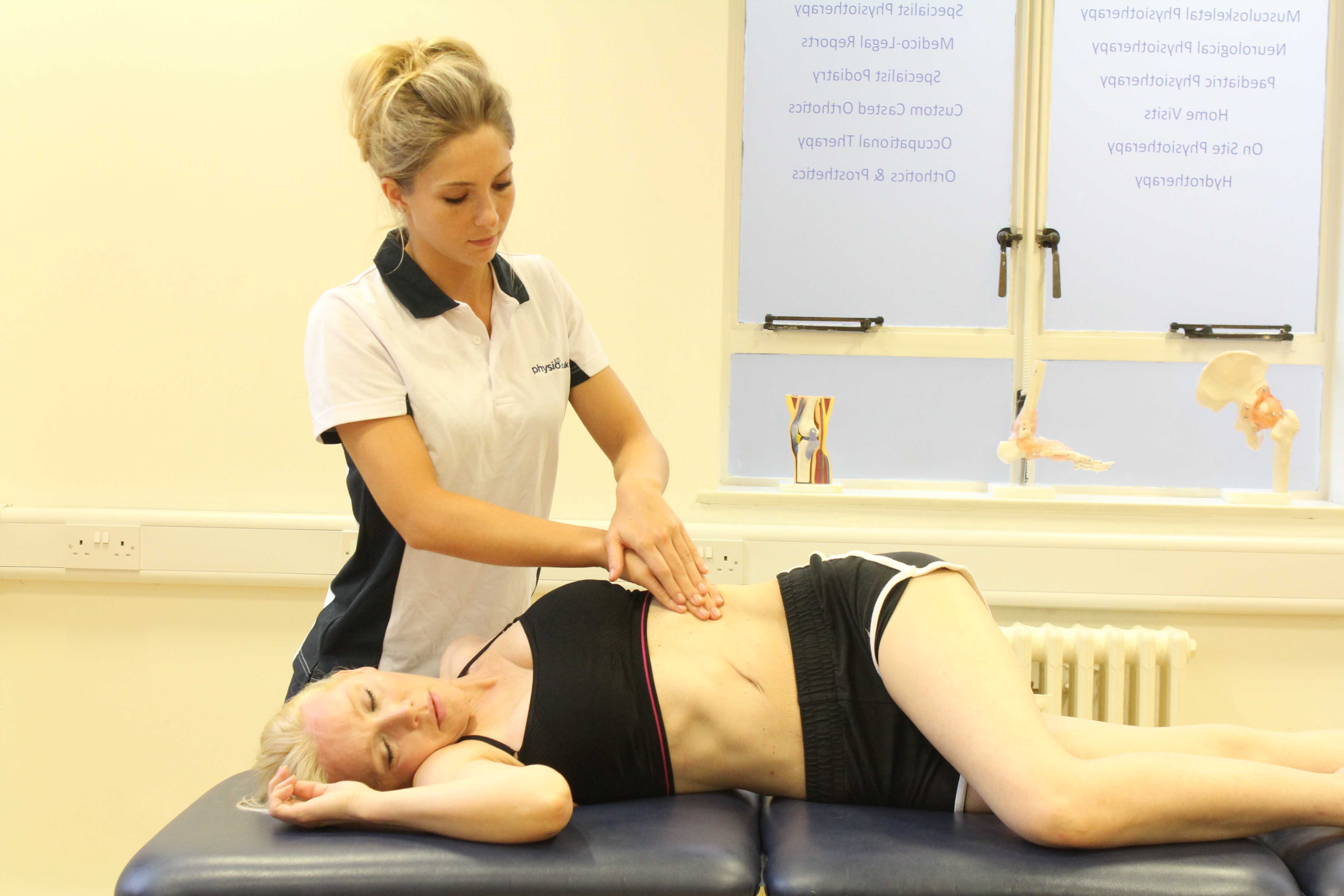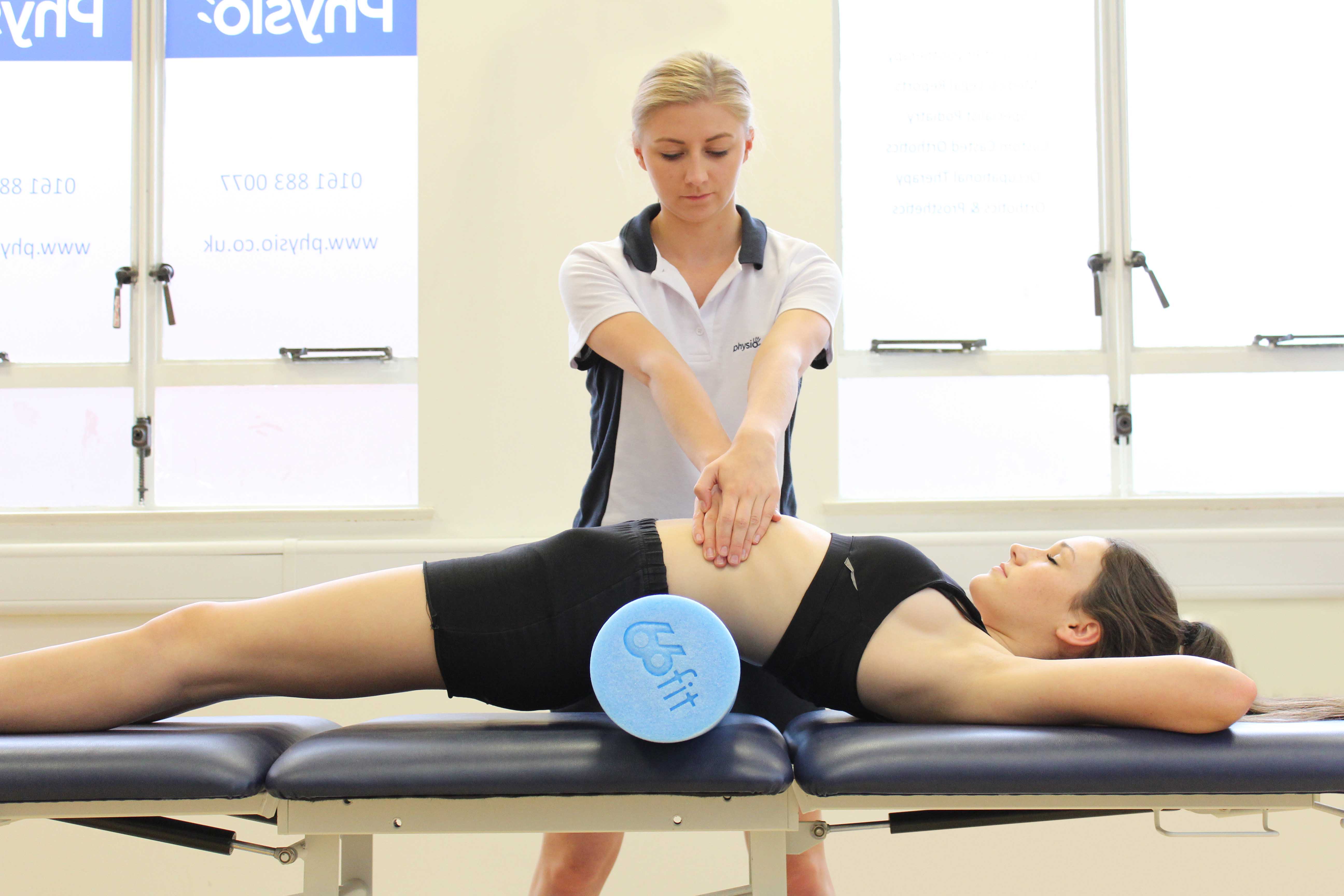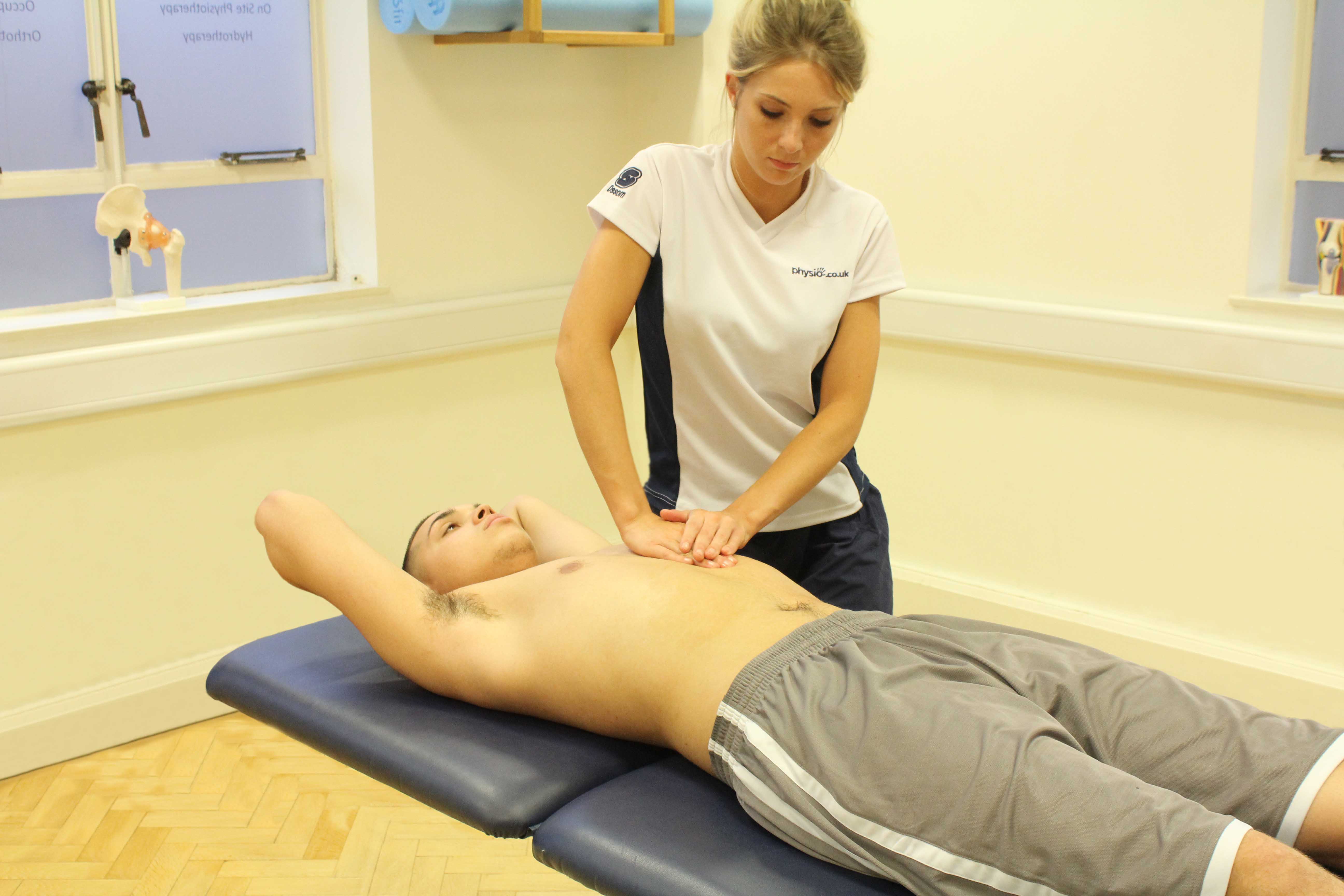What is an inguinal hernia?
An inguinal hernia is when some of the contents of the abdomen bulge through an area of weakness in the muscular wall of the abdomen. Physiotherapy can effectively treat an inguinal hernia.
 Above: Soft tissue massage of the abdominal muscles by an experienced therapist
Above: Soft tissue massage of the abdominal muscles by an experienced therapistHow does an inguinal hernia happen?
Inguinal hernias commonly occur during activities that increase the pressure within the abdomen, such as, lifting, coughing or straining. During these activities a portion of the abdominal contents can be pushed through an area of weakness in the lower abdominal wall and lower abdominal muscles.
What are the symptoms of an inguinal hernia?
Inguinal hernias cause pain on one side of the lower abdomen, just above the genitals. Pain is usually aggravated by activities such as lifting, pushing and coughing. There is often a visible bulge in the groin area. Other symptoms include:
 Above: Soft tissue massage of the abdominal muscles by an experienced therapist
Above: Soft tissue massage of the abdominal muscles by an experienced therapistWhat should I do if I have an inguinal hernia?
If you have or suspect you have an inguinal hernia, you should seek medical advice as soon as possible. This is because some inguinal hernias require immediate surgery.
What shouldn’t I do if I have an inguinal hernia?
If you have or suspect you have an inguinal hernia, you should not ignore the problem.
 Above: Soft tissue massage of the abdominal muscles by an experienced therapist
Above: Soft tissue massage of the abdominal muscles by an experienced therapistPhysiotherapy treatment following an inguinal hernia repair.
Following an inguinal hernia repair your physiotherapist can teach you core stability and pelvic floor exercises to strengthen your lower abdominals and accelerate your return to normal activity.
Further treatments include:
Could there be any long-term effects from an inguinal hernia?
Inguinal hernias do not get better by themselves. Surgery is required to repair to the defect in the abdominal wall. Following an inguinal hernia repair, recovery normally takes place in a matter of weeks and there are usually no long-term effects.
 Above: Soft tissue massage of the abdominal muscles by an experienced therapist
Above: Soft tissue massage of the abdominal muscles by an experienced therapistTo arrange a physiotherapy appointment or work site assessment call Physio.co.uk on 0330 088 7800 or book online.

 0330 088 7800
0330 088 7800


































